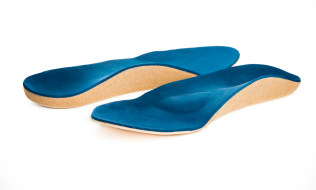
While it might come as a surprise to some plan members, what may seem like a freebie or giveaway with the purchase of a medical device or service can actually count as benefits abuse.
And in some case, offering incentives to customers will get a provider delisted by an insurance company. This week, for example, Shelley Frohlich, director of Sun Life Financial’s investigative services unit, noted in a LinkedIn posting that the insurer had delisted a number of health-care service providers. The posting noted the use of incentives has been on the rise.
Delisting is, however, a common practice, according to Yafa Sakkejha, general manager at Beneplan Inc. “It’s very common. Green Shield, for example, they actually just publicly came out with their list of delisted providers,” says Sakkejha.
In regards to Sun Life’s recent move to delist, Gary Askin, assistant vice-president of fraud risk management at the insurer, notes its practices have evolved. “In the past, we delisted for abuse and fraud and inappropriate business practices. We also now delist for offering incentives, because what we noticed was that facilities are issuing incentives or providing incentives that are beyond a nominal value or not related to the product being dispensed. . . . So if you had a facility offering orthotics but also offering incentives that involved jackets and purses and that type of thing, then that’s a concern for us,” he says.
Read: Four tips to help employers curb benefits fraud
Askin indicates that the incentive issue arises most commonly in areas like orthotics and support stockings. In some cases, it has been quite brazen, both in scale and with providers providing explicit instructions on how to obtain the incentives.
“We’ve also found that frequently, through doing secret-shopper investigations, that people just attended these facilities and they’re only interested in the incentives to begin with. And we found evidence of that by hearing it from them directly but also by locating hundreds . . . of pairs of orthotics that had never been picked up,” he says.
“Our concern is that the diversion of health-care dollars to the retail industry is not something that our clients should be paying for or Sun Life should be paying claims for,” Askin adds. “That’s driving costs up, it’s abusive, and we feel like it can lead to fraud. This is just simply exploiting the plan and not something we want to pay for.”
While it’s not always the case, there can be consequences for plan members taking advantage of such offers.
“If the employee has actually taken that clinic up on their offer of free stuff and there’s evidence for it, then their benefits would be suspended,” says Sakkejha. “Now some carriers are tougher than others. Some carriers will just suspend that category, so they’ll say ‘OK, so you can’t claim any physio anymore.’ Some might exclude the whole paramedical category.”
Read: Toronto councillors question benefits loopholes flagged by auditor general
In extreme cases, it could lead to dismissal.
“That’s really rare, because you need a lot of evidence to show,” says Sakkejha.
Frohlich says incentives can blur the line of intent when it comes to purchasing medical equipment or services.
A benefits plan, she says, aims “to reimburse for products and services needed to treat a medical condition, illness or injury. And through the offering of incentives, then it really puts into question whether people purchased because a piece of equipment or service is medically necessary or because they may get something free with their purchase.”
